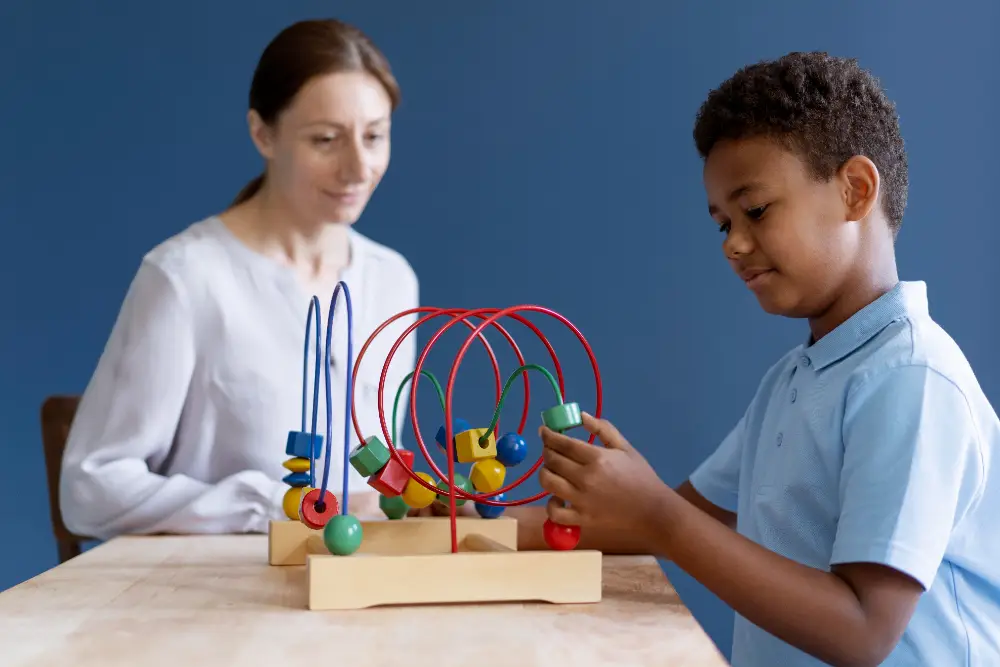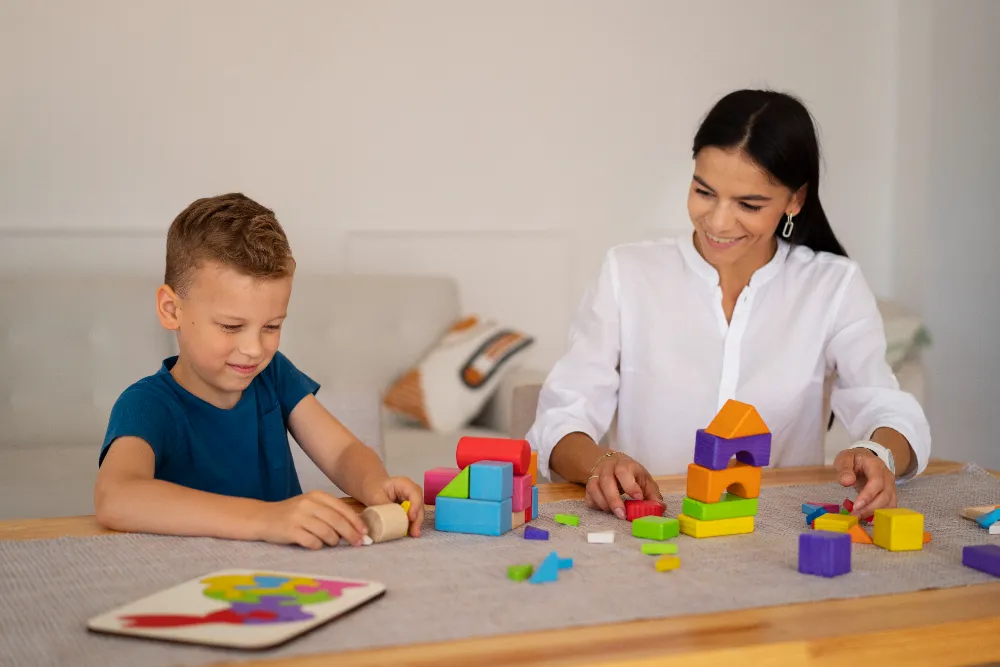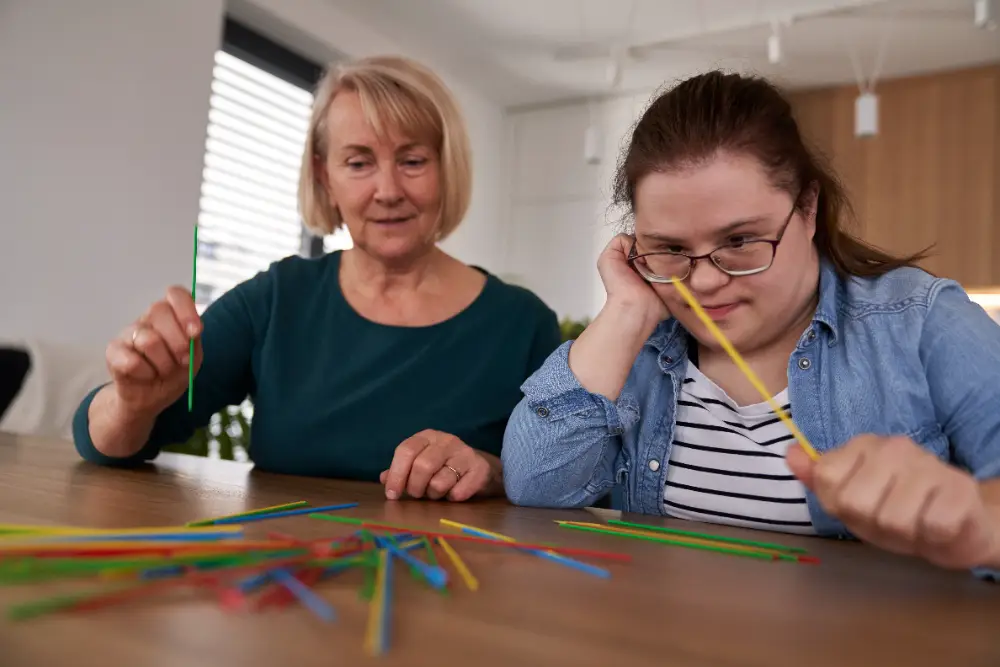
Let us know your occupational therapy needs—whether it’s support with daily tasks, building independence, managing sensory challenges, or improving participation in everyday life.
We’ll connect you with experienced NDIS Occupational Therapists who offer personalised, goal-focused support.
Your Occupational Therapist will contact you, assess your needs, and create a tailored plan to help you build skills, gain confidence, and live more independently.

NDIS Occupational Therapy is a support funded by the National Disability Insurance Scheme (NDIS) to help you build the skills needed for everyday life. If you’re living with a disability, an Occupational Therapist (OT) works with you to improve how you manage daily activities — whether at home, work, or in the community. Your OT will assess your needs and develop personalised strategies to support your goals, from gaining independence with personal care to using assistive technology safely and effectively.
OT services under the NDIS can support both your physical and mental wellbeing. You might work on improving fine motor skills, building routines, managing sensory challenges, or participating in activities that matter to you. Your OT can also help with reports for home modifications or funding requests for specialised equipment. In short, occupational therapy is about helping you live more confidently, independently, and with greater quality of life.

Comprehensive evaluations to understand your current abilities and identify the supports you need for daily living.

Support to build independence in everyday tasks like bathing, dressing, cooking, and personal hygiene.

Expert guidance on choosing and using assistive equipment such as adaptive cutlery, shower chairs, or communication devices.

Assessment and recommendations for home changes like ramps, grab rails, or bathroom alterations to improve safety and accessibility.

Strategies to help manage sensory processing difficulties, often used for children with autism or sensory sensitivities.

Focused rehabilitation for improving hand and arm strength, coordination, and fine motor skills after injury or neurological conditions.

Therapy to support memory, attention, planning, and other cognitive skills that impact daily living and decision-making.

Mental health-focused occupational therapy for managing anxiety, depression, emotional regulation, and daily structure.


Occupational therapists help you develop the skills needed for daily tasks like dressing, cooking, personal care, or using public transport. Success means gaining the confidence and ability to perform these activities with ease, safety, and independence, making everyday life more manageable.
Your OT works with you to set meaningful goals and create a therapy plan tailored to your unique needs, challenges, and aspirations. Success is about achieving milestones — whether that’s returning to work, managing sensory needs, or staying active in the community — in a way that feels fulfilling and empowering.
From children developing routines, to adults navigating work and independence, and older adults adjusting to physical changes, OT support evolves with you. Success means reaching your full potential at every life stage with flexible, practical support focused on helping you thrive.

Occupational Therapists support people with disabilities to build practical skills for everyday life — such as dressing, cooking, managing time, or using transport. They also recommend assistive devices and suggest changes to your environment to improve independence and safety.
If you’re an NDIS participant with goals related to daily living, mobility, mental health, or community participation, occupational therapy may be part of your plan. It’s available to children, adults, and older Australians depending on individual needs.
From sensory regulation to routine-building and communication strategies, occupational therapists work closely with children on the autism spectrum to improve focus, social participation, and independence in school and home life.
Daily tasks like showering, cooking, or organising your space, as well as broader goals like building confidence in social settings, getting ready for work, or learning new routines can all be addressed in OT sessions.
Depending on your needs, your OT can provide support at home, in the community, at school, or in a clinic. Home visits are especially helpful when assessing for modifications or practising tasks in your own environment.
During your planning meeting, mention your daily challenges and the areas where support would help. Your planner or support coordinator can help request funding for OT as a ‘Capacity Building’ support.
Occupational Therapy focuses on helping you do daily tasks more easily, while physiotherapy is more movement and muscle-based. OTs work on function, routines, behaviour, and the use of tools or environmental supports to make life easier.
Session frequency depends on your goals, funding, and needs. Some people see their OT weekly, others fortnightly or monthly — your therapist will recommend a schedule that supports your progress without overwhelming you.